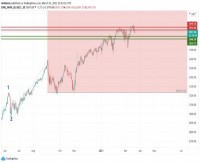|
By: Robert Printz  Robert Printz plans on using Dodd-Frank and the Volcker Rule in Investing strategy With sweeping legislation often come unanticipated consequences. And in the case of the long awaited (and widely derided) implementation of both Dodd-Frank and the Volcker Rule, the unanticipated consequences have included positive ones for more nimble investment firms. The ban on most forms of proprietary trading by major bank dealers, coupled with the regulatory influence of Dodd-Frank, has dramatically reduced the presence of some of the most formidable competitors to the nimble investment firms, creating significant opportunity. This development has expressed itself in several ways. "(As a result of Dodd-Frank and the Volcker Rule) nimble firms can have a widely diversified portfolio in a multitude of strategies across many sectors." Nimble firms can have a widely diversified portfolio in a multitude of strategies across many sectors. With far more instruments, securities, options and other derivatives in existence now than 20 or 30 years ago, and with increasing numbers of countries and jurisdictions having functioning securities and derivatives markets, the number of available financial products has increased dramatically. At the same time, the complexity of the worldwide financial landscape has greatly increased, and this complexity has created new opportunities. The diversification of portfolios allows for a multi-strat profile even within fixed income funds; a departure from previous norms. But the availability of this plethora of instruments is not the real news. The regulatory influence of Dodd-Frank and the pending implementation of the Volcker Rule ban on proprietary trading by major bank dealers together have dramatically reduced the presence of dealer proprietary desks at the big banks and other large dealers. With the banks and large dealers vacating so many of these business segments, opportunities for investment firms to lend their expertise in these areas are expanding to fill the vacuum. Previously, the dealer proprietary desks at the major bank dealers would see the flows first, position trades for themselves, keep prices in line and exit at their convenience when other customer flows or technicals provided them with a suitable exit. We believe that dynamic is greatly reduced today. Dealers seem averse to holding significant positions and thus much more quickly move prices to levels at which another liquidity provider is able to structure a strategy with an attractive rate of return for investment. And the nimble investment firms are also able to be more agile with positions and take advantage of smaller dealer axes and opportunities that can really make a meaningful performance difference, which may not be the case for very large ($10+ Billion) funds/managers. There are several specific observations that can be made about the impact of the ban on proprietary trading-among other influences--on four investment strategies. Interest rate relative value 2008 created bad memories for many investors in the fixed income relative value sector. Investors still fear leverage, math, or strategies they cannot easily explain to an investment committee. It is for these reasons that few new managers and limited investor appetite have been observed in this sector, although opportunities remain fertile. Recognizing this, there has been a significant recent uptick in demand from investors in this area. Additionally, there has been some transition from some investors away from directional, more macro styles to more of a relative value approach. Finally, the lack of dealer capacity has allowed for the execution of a number of less complicated strategies that have been successfully employed for years in relative value. Long/short relative value credit Beta has had a wonderful run over the past 4-5 years. We have heard from a number of investors that it’s time to move away from outright long credit to a more neutral or defensive credit stance. It appears that investors are having a hard time finding managers who are really credit neutral and not taking some form of beta risk. Investors areseeking a focuson generating low correlated alpha, using a credit agnostic, multi-strategy approach to credit. Long only credit Investors have also been focused on locating alternatives to their long only fixed income allocation. Using the Barclays Aggregate Index as a proxy for a fixed income allocation, some investors have indicated that they are fearful of interest rates rising and are also concerned about being long rate duration. There has been strong interest in discount, floating rate, short-dated, long only instruments with high levels of subordination. We believe that this defensive, long only sector can provide less interest rate sensitivity than a traditional long only portfolio as well as potentially higher expected total rates of return in a rising interest rate environment. Asymmetric portfolios Investors are often looking for inexpensive options. One option is to structure customized asymmetric portfolios that are believed to provide limited current income but hope to achieve solid performance in a market breakout in one direction or the other. With so much market uncertainty, there is significant appeal to looking at overlay strategies that can be complementary to existing portfolios. The influx of new capital in relative value and defensive floating rate credit strategies confirms that the brave new world of Dodd-Frank and the Volcker Rule has increased opportunities for more nimble investment firms. Robert Printz, Principal and Co-Head, Investor Relations |
|
This article was published in Opalesque Futures Intelligence.
|





 RSS
RSS









